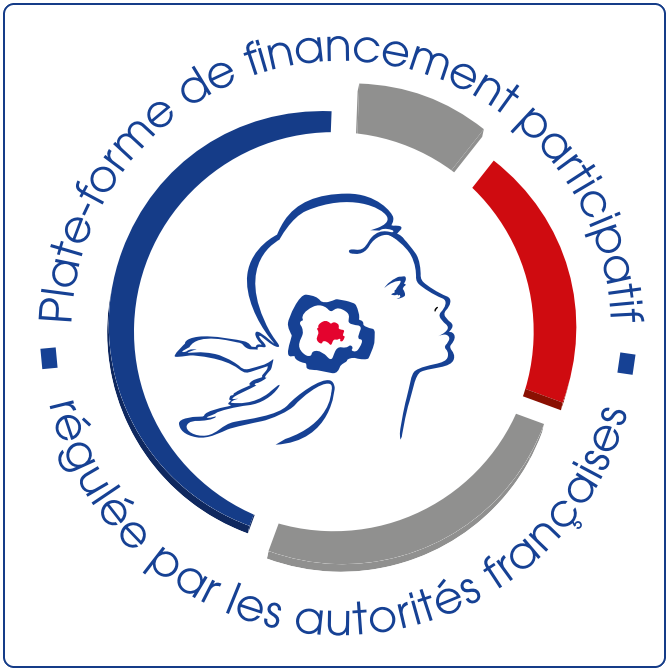


This reflection is the point of departure of my filmmaking approach.
Revitalizing, accepting, reconciling, educating, and cultivating ourselves in Africa’s realities; these all require a knowledge of our past, our rituals, our day-to-day objects, our religious objects, of their meaning, their symbols, of our culture, our artistic practices and what they represent, in short of our cultural heritage.

In 1969, when the Pan-African Federation of Filmmakers (FEPACI) was set up, the pioneering African filmmakers defined cinema as both a means of entertainment and of public education.

Combining entertainment and public education to reappropriate our history, our cultures, and our environment, finding a balance between content and form, freeing ourselves from certain dogmas are among the challenges that the Patrimoines-Heritage project attempts to meet today, in a natural prolongation of my work as a documentary filmmaker.

Bandjoun Film Studio, a Cameroonian production structure based in Bandjoun in the West of Cameroon created in 2018 by Jean Marie Teno and which carries the Heritage project



Promote the writing of reality through the training of young people in documentary cinema, image education, the production and dissemination of original works on Cameroonian cultural heritage, diversify the supply of non-fiction films with strong local roots and thus contribute to the development of creative cultural industries in Africa.

An African narrative of Africa that values the richness of our heritage and puts our heritage into image.

17 films directed by young filmmakers and produced by Bandjoun Film Studio.

17 young documentary filmmakers trained, including 11 women.

7 films selected in international festivals, one of which has won a major award. 3 feature-length documentaries in development. A digital documentary film distribution platform has been made available to all to disseminate documentary films in Africa.

In 2017, we set up the first Patrimoines-Heritage documentary film training workshop, a free, three-month course in a dedicated setting. The candidates were chosen on the basis of their applications, comprising a director’s statement, a letter of motivation, and a one-page presentation of a film idea. We worked from this idea all the way through to a 30-minute film maximum, a practice-based training, in which ethical and aesthetic questions were addressed. The films were shot and edited during the workshop and a public screening of the works organized to mark its completion. In 2017, the workshop took place at Bandjoun Station, a museum and artist residency in Bandjoun;

in 2018 at the Fondation Jean Félicien Gâcha in Bangoulap;

and in 2021, in Santa Barbara, a private villa in Yaoundé. One of the major challenges in holding the workshops has been finding an affordable venue to host them.

In 2022, Patrimoines-Heritage developed an additional distribution activity, creating a public education and education in the visual image programme in local communities and schools. Films screenings are followed by discussions between audiences and directors, or resource people with knowledge about the film’s subject, sparking a public education process that continues on social media networks and in the media. 55 free public screenings in 5 regions of Cameroon and 16 towns. Local populations have been able to discover films made during the previous Patrimoines-Heritage workshops, along with several patrimonial works by filmmaker Jean Marie Teno.
http://streamingpatrimoines-heritage.tv

The aim is now for the secondary school, high school, and university screenings to be integrated into the school curriculum as a form of education in the visual image, to encourage young people to analyse images and to master audiovisual tools and to contribute to transforming their environments.

To make available the films produced in the framework of the Patrimoines-Heritage workshops, a public digital documentary film distribution platform has been set up to disseminate the Patrimoines-Heritage films, Jean Marie Teno’s films, and other African non-fiction films.
To continue to fulfil all of these goals efficently, we urgently need a designated, conducive workplace, hence the idea to set up LA’A LOM.


LA’A LOM: a cultural centre in the heart of Bandjoun, a village in Western Cameroon. Approximately 350 square metres, it will contain 13 rooms, 9 of which that are modular bedrooms/editing rooms, 3 workspace/screening rooms/offices, 1 large kitchen, all set in 2000 square metres of grounds in a calm spot far from the hustle and bustle of the town.

LA’A LOM will be a documentation centre, a conservation, and archive centre for Jean Marie Teno’s films, and for the films made during the 2017, 2018, 2021 and future Patrimoines-Heritage workshops. This documentation centre will focus on heritage, documentary cinema, and African film. It will also devote space to the themes addressed in the Patrimoines-Heritage workshop films and will become a permanent heritage resource centre.

LA’A LOM, the village forge, a documentary centre in the heart of the countryside, will be the place where the Patrimoines-Heritage workshops will also be held. This will make it easier to modulate the length of the workshops and to produce longer films, and perhaps even feature-length documentaries. This will allow us to gain in efficacity and to make our action more durable and more coherent. It will be a place of creative retreat where filmmakers can come to develop their film projects.
Training workshops into other film specializations, such as lighting, camerawork, editing, mixing, and colour correcting, will also be held at the centre.
LA’A LOM will be a modular centre hosting workshops, residencies, and productions, and where it will also be possible to organize open-air screenings for local communities.

LOM means the forge in the Bandjoun language, a concept evoking fulfilment. The forge is the place where, from raw metal, diverse objects, such as tools and day-to-day or artistic objects are created. Talom (Tà’a LOM) means the father of the forge.


What we still need to complete the LA’A LOM project
Construction work on the LA’A LOM cultural centre began in 2022 on a plot of land belonging to Jean Marie Teno. Most of the funds have been provided by Jean Marie Teno, with the backing of the Bandjoun Film Studio. Teno aims to conserve the visual and sound documents of his own films, which are a part of African film heritage, in this centre. The launch and success of the Patrimoines-Heritage workshops make it all the more necessary to create this centre, which will root film, the visual arts, and heritage in the lives of people from the region, Cameroon, and the continent.
The remaining part of the LA’A LOM construction project consists of completing this building so that it can host the future Patrimoines-Heritage workshops. The May 2023 edition will be the inaugural moment of this centre unique in its kind, and essential for the durability of the Patrimoines-Heritage project and for documentary cinema in Cameroon. Completing the centre will consist of finishing the construction of the building, its roof, the carpentry, plastering, interiors, fittings, and the installation of ecological electricity, running water, and waste disposal systems.
To complete LA’A LOM, we need you


Pledges and rewards
30 euros 3 short films from the Patrimoines-Heritage collection 50 euros 3 short films from the Patrimoines-Heritage collection +1 film by Jean Marie Teno 100 euros 5 short films from the Patrimoines-Heritage collection+ 2 films by Jean Marie Teno 200 euros 10 short films from the Patrimoines-Heritage collection+ 4 films by Jean Marie Teno 500 euros The entire Patrimoines-Heritage film collection + 5 films by Jean Marie Teno 1000 euros The entire Patrimoines-Heritage film collection + 7 films by Jean Marie Teno + discretionary Zoom discussions.










